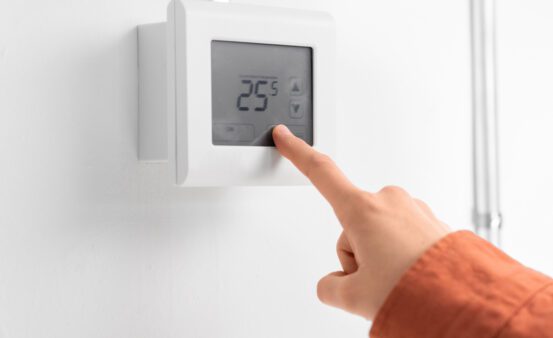Lower Your Energy Usage and Utility Bills

There are plenty of ways to conserve energy and tame your heating, lighting, and cooling bills. According to the U.S. Department of Energy, 30% of what most Americans spend on utilities could be reduced with proper weatherization and other simple changes. To help put money back into your pocket and give the planet a little boost, let’s take a look at some easy energy efficiency tips.
Expertise is Essential
Talking about energy efficiency led us to Jess Dahlen, Clean Energy Consumer Lending Manager at Clearwater Credit Union. Since helping develop Clearwater’s Clean Energy Loan Program, she’s become something of an expert. To save on utility costs, Jess suggests starting with your home’s weatherization.
Insulation is Important
According to Jess, most energy loss is due to poor insulation in the walls. “Generally, you’ll lose 30% of your energy through poorly insulated walls,” she explained, “25% through the roof, 15% around windows, and just 10% through floors and doors.” Jess added that upgrading to new windows is nice, but the payback versus the cost can take years to recoup.
Jess suggests checking the insulation in your walls and attic. If you find a spot where you need more insulation, hire a contractor to add fiberglass batt insulation, blown-in fiberglass insulation, or spray foam insulation. Additionally, spray foam insulation is often the least invasive way to add weatherization to walls after a home is already built. However, consult a professional as spray foam can crack walls as well as damage electrical wires and plumbing. Additionally, feel for air around windows and doors and add insulation and weather stripping as needed.
LEDs Make a Difference
“I’d suggest changing to LED lightbulbs,” Jess said when asked if LED lights were more energy efficient than other lights. “They use 75% less energy and last 25% longer than incandescent bulbs.”
Turn Off Electronics
For quick, easy energy savings at home, simply turn off your electronics when you’re not using them. That includes televisions, computers, appliances, and more. While a home computer doesn’t use a lot of power, turning off a dozen electronics or appliances when they’re not being used does add up.
Upgrade Your Heat Source NOT the Thermostat
“Upgrading your furnace to something more efficient can really help save money,” Jess said when asked how families can use less energy for heating and cooling. But she cautioned against fancy thermostats.
“Those thermostats can tell you when to change a filter, but you don’t need them. Almost all of today’s thermostats are programmable.” Jess suggests setting thermostats lower in the winter and higher in the summer to use less energy. “When leaving town, turn the heat down to 60 to save money.”
Solar Power is a Powerful Option
When it comes to money savings and helping the planet, Jess suggests looking into solar power for the typical Montana home.
“Prices have come down, and you could qualify for a 30% tax rebate,” she said when asked about the benefits of solar panels. “It’s a good way to save money and be green.”
Check out Montana’s Energy Bureau for more about possible rebates and tax incentives.
Clearwater’s Clean Energy Program can help you finance solar on your home, along with large batteries to store that power and even a new roof, if needed. However, Jess urges homeowners to get several bids and avoid solar scams that ask for large down payments. “We see solar contracts all the time, and we’re happy to review yours for possible issues. Email us today.”
Find Your Energy Savings
Insulation, weather stripping, and new LED lights are easy updates, but a new furnace, solar panels and hot water heater can add up quick. Give us a call and ask about borrowing up to $25,000 for clean energy construction, renovations, retrofits, and upgrades for solar and energy-efficient upgrades.
All loans are subject to approval. Insured by NCUA.


